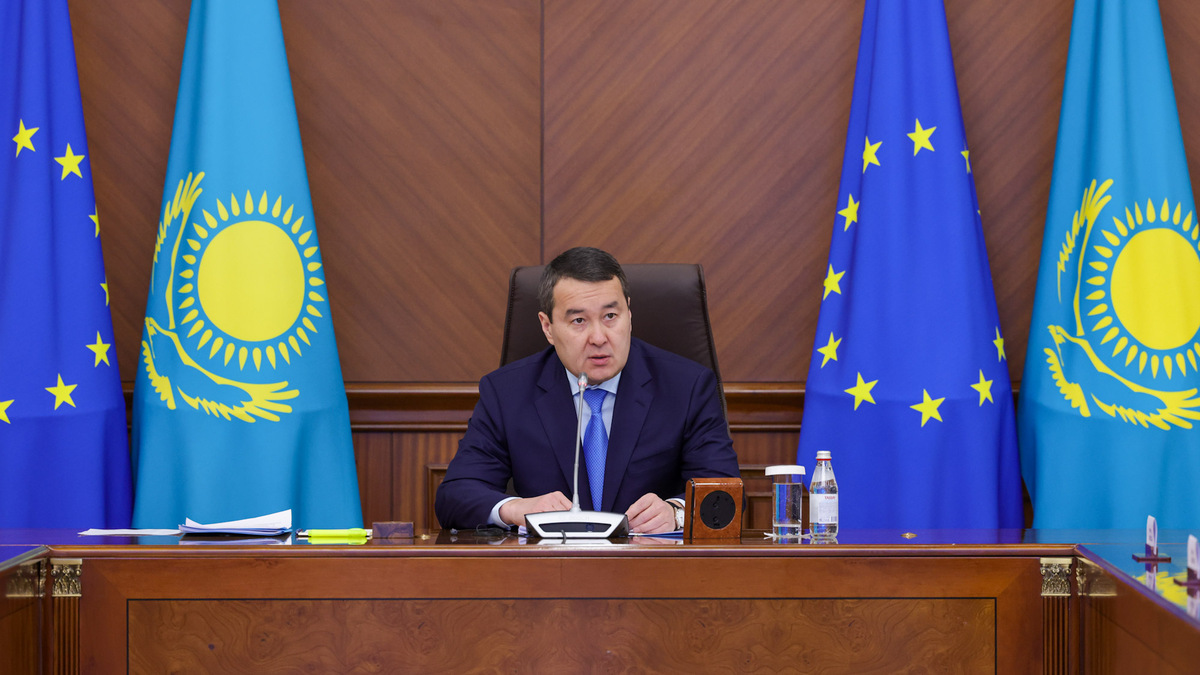ASTANA – The expanding presence of European companies in Kazakhstan is the evidence of the country’s growing appeal as an investment destination, said Prime Minister Alikhan Smailov during the 13th meeting of the Kazakhstan-European Union (EU) dialogue platform on Dec. 13 in Astana, reported the Prime Minister’s press service.

Prime Minister Alikhan Smailov during the 13th meeting of the Kazakhstan-European Union (EU) dialog platform. Photo credit: primeminister.kz
With total investments exceeding $175 billion, the EU is Kazakhstan’s largest trading and investment partner. For six months this year, the EU countries invested $5.2 billion in Kazakhstan’s economy.
“The share of the EU in Kazakhstan’s foreign trade is around 30%. For ten months, our trade turnover exceeded $34 billion. These indicators reflect our consistent course to increase trade and economic cooperation,” said Smailov.
Over 3,000 European companies, such as Shell, Eni, Air Liquide, Alstom, and Claas, operate in various sectors of Kazakhstan’s economy.
“This year has been very productive in terms of developing investment cooperation. Our joint pool is replenished with new major projects. Some notable examples include the implementation of Svevind’s project to produce green hydrogen, the agreement with Total on the construction of a one-gigawatt wind farm, Knauf’s plans to open its fourth gypsum board production plant, as well as the launch of large-unit assembly of vehicles by Scania,” said the Prime Minister.
The meeting identified several key areas where investment cooperation between the two trading partners could be enhanced, ranging from improving the tax and customs systems to developing the pharmaceutical industry, from geological exploration and the agricultural sector to licensing, crediting, and business support.
“We strive to create the most favorable conditions for the inflow of high-quality and long-term investments. For this purpose, the legal and regulatory framework and investment support tools are constantly being improved following the best international standards,” said Smailov.
Kazakhstan has adopted the Concept of Investment Policy through 2026 with consideration of environmental, social, and governance (ESG) standards. The National Infrastructure Plan until 2029 is being developed to provide projects with quality infrastructure. A new administrative service model will also be introduced in the new Tax Code.
“The National Digital Investment platform is being developed for the convenience of investors who receive public services and for quality support of projects,” said Smailov.
